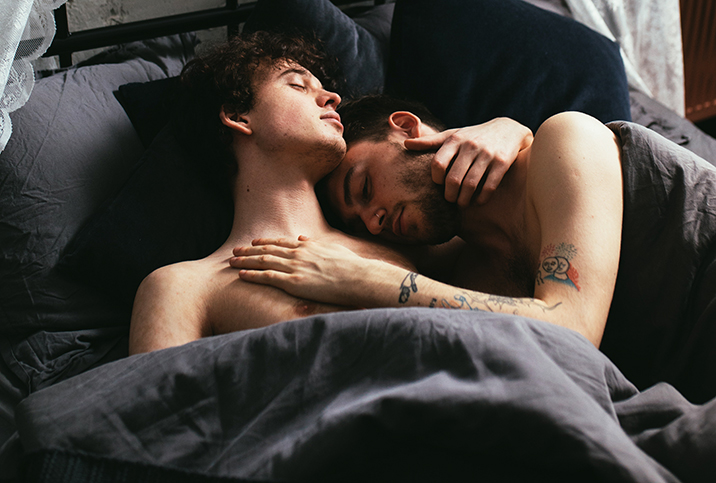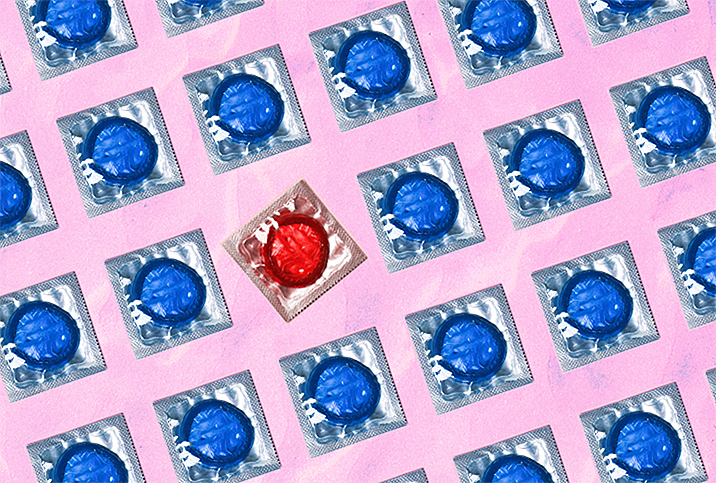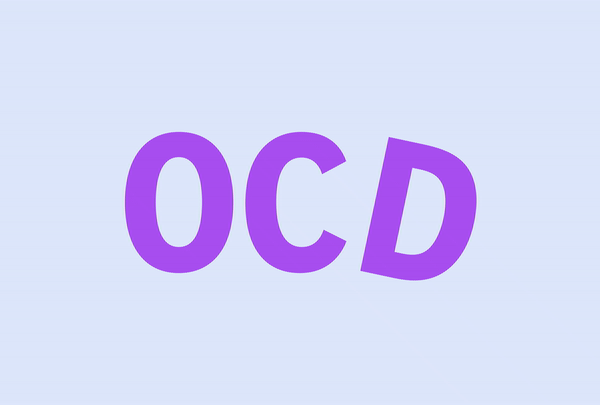LGBTOCD: Living with Obsessive-Compulsive Disorder while Queer

Growing up in a conservative community, I was hyper-aware of my differences. While I didn't have the vocabulary to put it into words as a child, I knew I was gay. Moreover, I experienced a constant stream of obsessive thoughts and intermittent compulsive behaviors, which fostered feelings of frustration and loneliness.
I worked tirelessly as a kid to hide both facets of my identity. While I did come out as gay in high school, I remained in the closet with my obsessive-compulsive disorder (OCD), scared to admit to myself that I suffered from a mental illness.
What is obsessive-compulsive disorder?
Obsessive-compulsive disorder is a chronic mental illness affecting an estimated 1-3 percent of the population. OCD is commonly centered around two categories of symptoms:
- Obsessions—Intrusive thoughts and behaviors, such as the fear of self-contamination or stress when objects are not ordered in a specific way.
- Compulsions—Repeated, irrational behaviors, such as constant cleaning, counting in patterns and rechecking light switches and locked doors.
While OCD symptoms are unique to the individual, people with obsessive-compulsive disorder cannot stop their intrusive thoughts and behaviors, even if they know their obsessions and compulsions are irrational.
In mild and moderate cases, OCD is often considered an invisible disability, as the symptoms do not generally manifest in ways easily seen by outsiders. Even with milder cases, obsessive-compulsive disorder can have external ramifications, especially with relationship-building. People living with OCD are often at an increased risk for anxiety and depression, which can lead to self-isolation. Likewise, the disorder can lead to fears concerning sexual health, making it difficult to find a life partner.
The intersection of OCD and sexual orientation
I moved to California for college to try and live somewhere more accepting of my sexuality. Though I did largely feel accepted during my undergrad years, I still found myself stifled from enjoying life—because of my OCD.
Irrational questions of whether it was safe to let anyone know I was gay contributed to the failure of a relationship, as my now-ex wanted to hold hands and kiss in public. Compulsive tics, which remained but had subsided significantly since childhood, made me stand out when trying to interact with other queer folks. Whenever I was nervous or anxious, it would be obvious on my face that something was wrong.
My experiences with my intersecting identities do not represent an exception. There is a budding field of research into Sexual Orientation OCD: the obsessions some people with obsessive-compulsive disorder have with their sexuality. A 2011 study in Psychiatry Research indicated those with OCD who reported obsessions with their sexuality were twice as likely to be male than female and that sexual orientation obsessions may be associated with "an increased time spent on obsessions…[and] levels of distress, more interference and more avoidance."
Regardless of whether your OCD causes sexual orientation obsessions, having the disorder can lead to isolation within the LGBT+ community and from society at large. Like any visible or invisible disability, obsessive-compulsive disorder fosters stigma and can result in the otherization of those who endure it—potentially leading to difficulties with relationship-building, self-isolation, decreased levels of confidence and feelings of not belonging with others in the community who may not understand the illness.
Accepting identities in conflict
The conflict with my sexuality and OCD has not magically gone away over time. My symptoms still cause anxiety when meeting up with a guy for the first time or trying to build friendships with other queer folks. If you are living with obsessive-compulsive disorder as part of the LGBT+ community, I hope my experience offers reassurance that you are not any less valid as a person or deserving of happiness because of your conflicting identities. It was this realization, which took the first 22 years of my life to understand, that allowed me to come out to myself for a second time and accept both my identities as a queer person and as someone living with OCD.

















